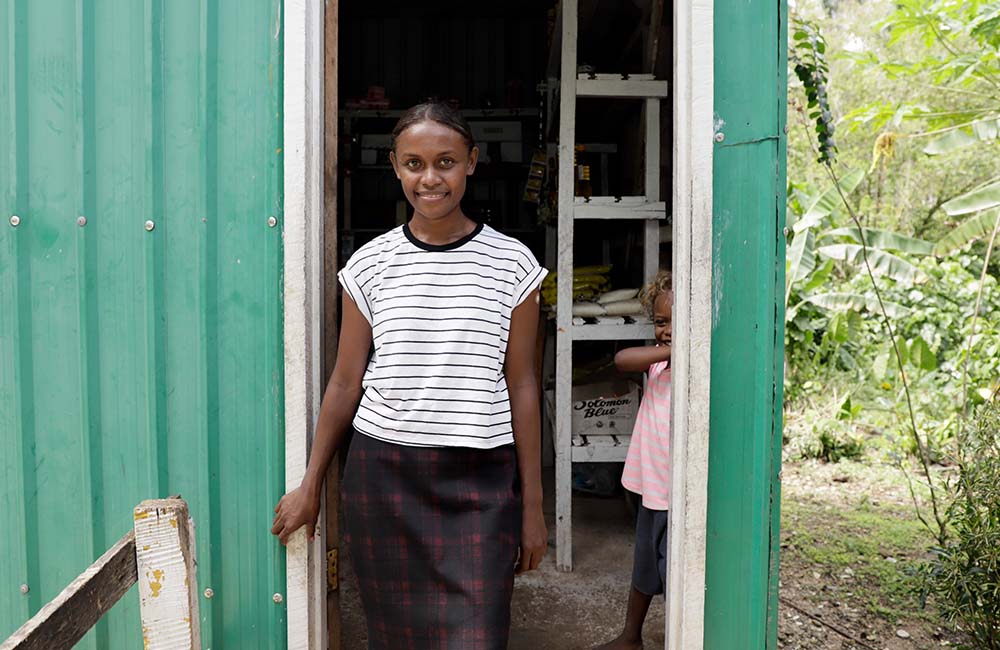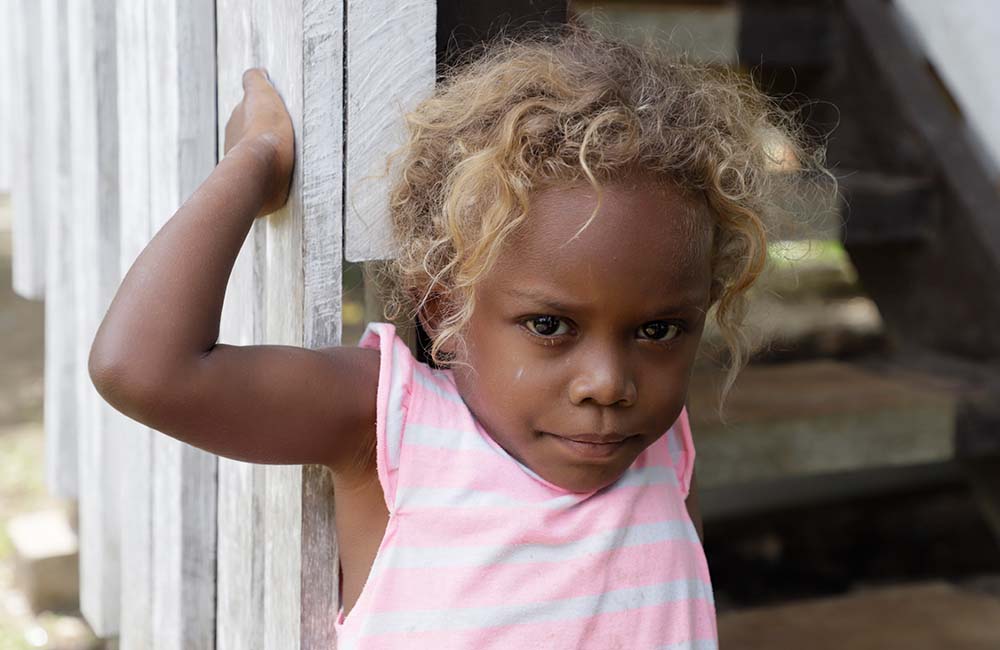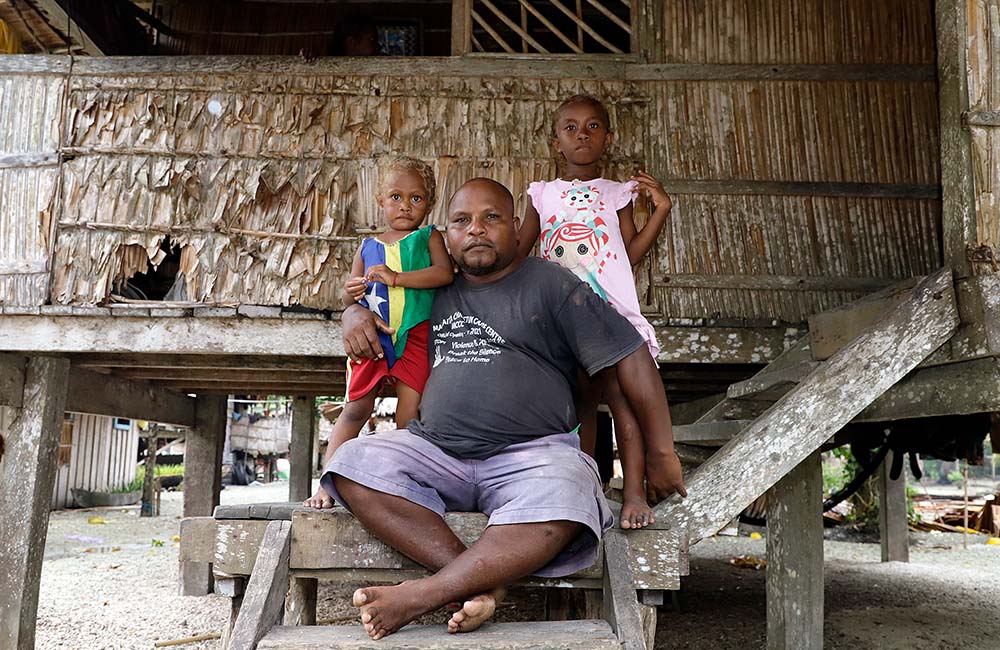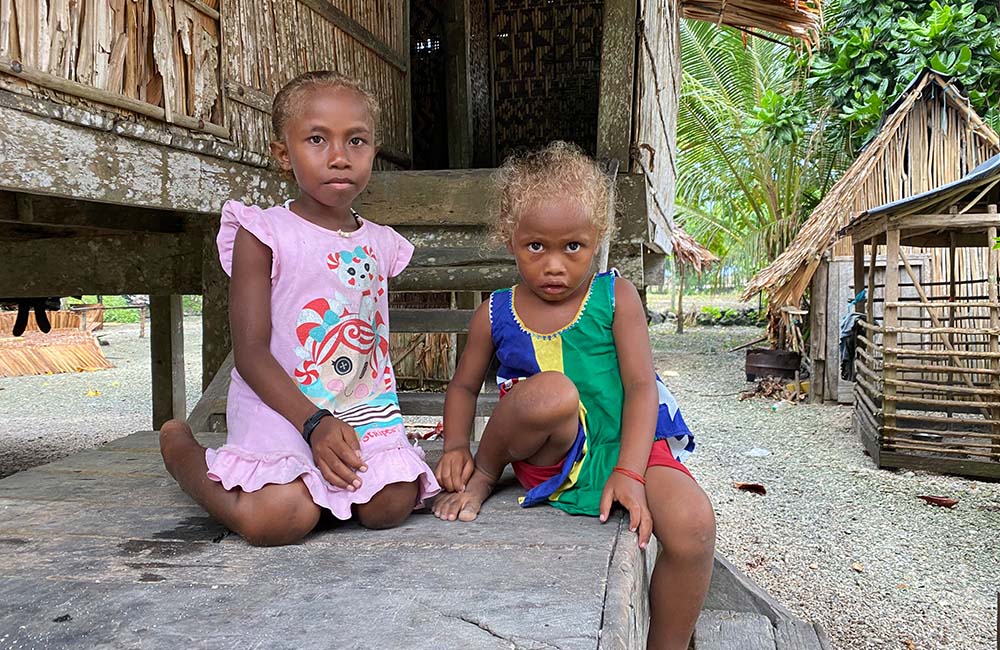Empowering Solomon Islanders to build happy, safe communities
“Peacebuilding is important in the community because it creates peace… It creates a community for children and young people where there is no conflict,” says Herity, a softly spoken 23-year-old from the Solomon Islands.
Having witnessed the impact of conflict on her village in Malaita province, Herity wants to promote peace to build a better future for children and young people. This includes her five-year-old niece, Hazel, who she says follows her “around like a dinghy” each day.

Herity is a model young person in her community, and a role model for her 5-year-old niece, Hazel.
Photo: Collin Leafasia/Save the Children Solomon Islands
With a diverse mix of ethnicities, political views and language groups spread across the Solomon’s 1000 or so islands, the remote Pacific nation is no stranger to conflict. Just last year, peaceful political demonstrations morphed into violent riots that caused $82M worth of damage in only weeks.
These drivers of unrest are compounded by youth unemployment. More than two-thirds of Solomon Islanders are under 30, many disaffected and desperate for economic opportunities.
Herity says this trend can play out in her village. “Causes of conflict in the community usually stem from young people using drugs such as marijuana and drinking Kwaso [homemade alcohol]. This causes them to fight and do things that are not right in the community,” she says.
Community champions
The young woman was recently nominated by her Pastor to become a ‘Peacebuilding Champion’ with Save the Children. Herity travelled to the provincial capital for 2 weeks of training in how to mediate conflict and build the foundations of a healthy community.
As the only woman of 12 trainees - amongst them other youth, sports and community leaders - Herity initially felt shy and lacked confidence to partake. However, with Save the Children’s support she now feels much more knowledgeable and is passionate about applying what she’s learnt.

Herity believes peacebuilding can help young children, like her five-year-old niece Hazel, grow up happy and well.
Photo: Collin Leafasia/Save the Children Solomon Islands
“The training has equipped me to be able to solve any conflict that arises in my village. I have learned during the training that if disagreement arises, I should not take sides and I should remain neutral to help solve the conflict,” Herity says. “I will talk with one group and go talk to the other group to be able to solve the conflict between them.”
Save the Children helps peacebuilding champions not only mitigate conflict but address the root causes of violence to promote peace that lasts. “I also learned during the training that there are some children and young people who may have been traumatized and how we can support them,” Herity explains.
Eddie, another trainee and a community chief, feels similarly energized by Save the Children’s support. “I learnt new things during the training which has motivated me and increased my knowledge to fulfill my role as a peace builder,” he says.
Sustainable solutions
Eddie is also a youth leader in his community, so he already mediates disputes. But with our support, he’s learnt how to make sure his solutions stick. “…I learnt ways to settle conflict by finding out the causes of the conflict and at the end to address the root causes of the conflict so reconciliation can take place.”

Eddie thinks the peacebuilding training he participated in has potential to transform his country.
Photo: Collin Leafasia/Save the Children Solomon Islands
Eddie wants to empower others to solve their own problems, certain they’d benefit from the knowledge he’s learnt. “But if this training was rolled out for the community and the community were educated on peacebuilding, then everyone would be equipped with the knowledge to solve their own conflicts and problems as they arise,” he says.
The chief has a bold vision for how his country can be improved, imagining the powerful ripple effects of scaling Save the Children’s program. “For things to improve it starts in a home, then improves the community, then improves the province and then improves the country as a whole,” he says.
Herity echoes the chief’s thinking, already forming a vision to prevent violence in the first place and build sustainable peace. “I think we need to work together in our community and to establish [local laws] and a group to guide children to ensure that they do not get involved in violence and other conflict in the community,” she says.

As a youth leader in his community, part of Eddie’s role is ensuring a safe and happy environment for children to grow up in.
Photo: Katharina Glynne/Save the Children Australia
“Children are future leaders”
As a father of three young children, Eddie knows his work is critical for the next generation. “It is important to have peace in the community because children are future leaders of the community and because we should have peace in us, so that the future leaders who are children can see this and learn from our example,” he says.
“I am a representative of my community, and I will start off with my family and work bit by bit into the community on peace building awareness,” he adds.
The ‘Peace Building and Social Cohesion project’ is funded by the European Union and being implemented in both the Solomon Islands and Papua New Guinea.
Together with our partners, Save the Children is helping empower community members like Herity and Eddie to build secure community environments so children can grow up happy and safe - today and tomorrow.
